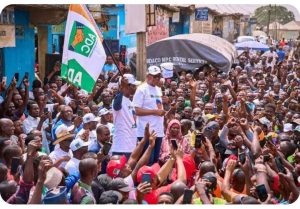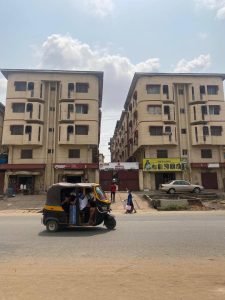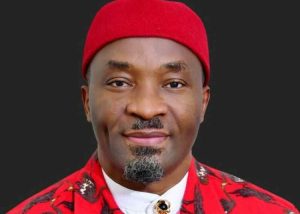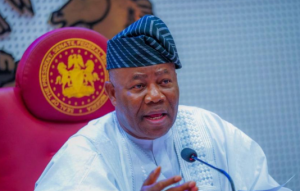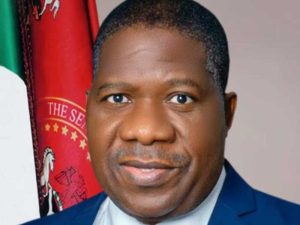Sudden Surge In Violence In Haiti
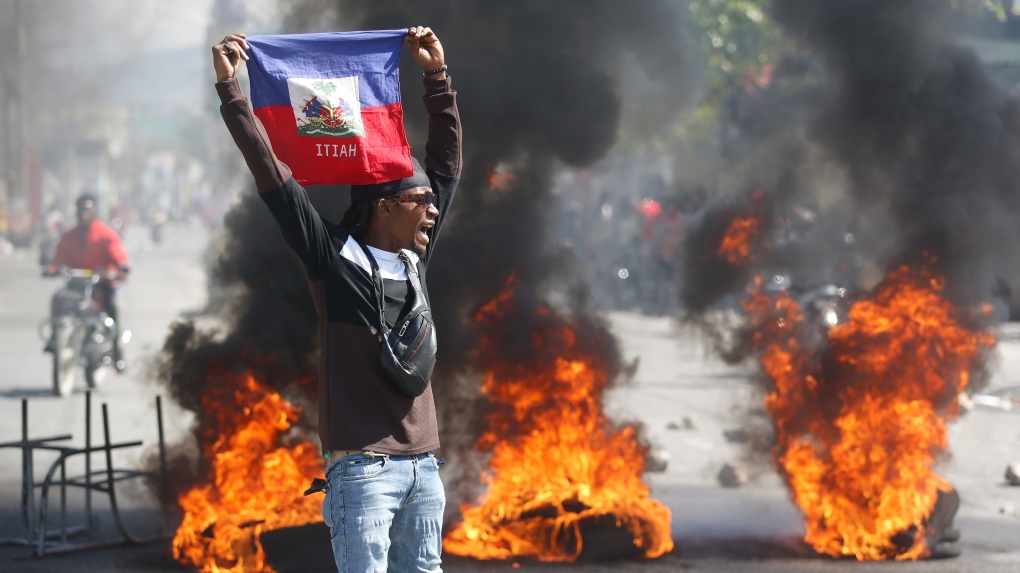
Sudden Surge In Violence In Haiti
Increasingly powerful gangs have attacked prisons and the airport serving Haiti’s capital in recent days, forcing businesses and schools to close as hundreds of people fled.
Heavily armed gangs have grown more powerful than Haiti’s weak government and they now control some 80% of the capital, according to the United Nations.
The latest attacks began Thursday as Prime Minister Ariel Henry flew to Kenya to push for the U.N.-backed deployment of a police force to help fight the gangs.
Heavy gunfire has echoed daily in the capital, overwhelming government forces. Frantz Elbé, director of the National Police, told Radio Caraïbes late last week that the recent attacks had left many of his officers unable to respond.
“The city center was at war,” he said.
Most residents were already staying indoors at night for self-protection. Government officials imposed a three-day nightly curfew that began Monday in an effort to help curb the violence.
Here’s what to know about the latest crisis:
WHY IS THERE A SUDDEN SURGE IN VIOLENCE IN HAITI?
Some of Haiti’s most powerful gang leaders say their goal is bringing down Henry.
The country has failed to hold parliamentary and general elections in recent years and there are no elected officials. Henry was sworn in as prime minister with the backing of the international community after the July 2021 assassination of President Jovenel Moïse. The latest round of attacks began in February after Henry pledged to hold long-awaited general elections by mid-2025.
On Saturday, gunmen overwhelmed the main penitentiary in the Port-au-Prince capital and another nearby prison, freeing thousands of inmates in a raid that left several people dead.
Henry’s whereabouts were not public Monday. When asked in Kenya if it was safe for him to return to Haiti, Henry shrugged.
WHO IS RESPONSIBLE FOR THE LATEST ATTACKS IN HAITI?
Jimmy Chérizier, a former elite police officer known as “Barbecue” who is considered one of Haiti’s most powerful gang leaders, announced as gunmen began to attack infrastructure that he would try and capture the country’s police chief and government ministers.
Four police officers were killed when their stations came under siege.
Cherizier said last summer that he would fight any international armed force if they committed abuses, and he urged Haitians to mobilize against the government.
Other gang leaders also appear to be involved in recent attacks.
Johnson André, best known as “Izo” and leader of the 5 Seconds gang, appears in a video posted on TikTok wielding a heavy mallet in his right hand as he pretends to punch his face with his left hand.
Izo’s gang is considered an ally of G-Pep, archenemy of Barbecue’s gang federation, but alliances have been shifting in recent days.
A report released last month by the Global Initiative Against Transnational Organized Crime found that “for the gangs, the development of alliances is a fluid phenomenon.”
It also noted how “only the most powerful gangs — such as Izo’s or Chérizier’s — are usually able to operate or profiteer outside their fiefdoms.”
Barbecue is leader of a gang federation known as G9 Family and Allies, and he has previously launched powerful attacks that have crippled the country. In late 2022, he seized control of an area surrounding a key fuel terminal in the capital of Port-au-Prince for almost two months.
WHY HAVE GANGS IN HAITI GROWN SO POWERFUL?
An estimated 200 gangs exist in Haiti, with 23 main ones believed to be operating in the metropolitan area of Port-au-Prince.
Up until recent years, they controlled some 60% of the capital, a number that has since grown to 80%, according to U.N. officials.
Smuggled firearms and ransom payments to kidnappers have allowed gangs to become more financially independent. That has increased their power as the state has weakened, and an underfunded and under-resourced police department has been unable to contain them.
“Present-day gangs enjoy a much higher degree of military capacity than those a decade ago,” according to the Global Initiative report. “This has largely been driven by the gangs’ ability to acquire high-caliber weapons.”
A 2023 U.N. report stated that recovered weapons destined for Haitian ports include “.50 caliber sniper rifles, .308 rifles, and even belt-fed machine guns.”
WHAT IS THE GOVERNMENT DOING TO QUELL THE VIOLENCE IN HAITI?
Finance Minister Patrick Boivert, who is serving as acting prime minister, declared a state of emergency late Sunday and said officials were imposing an evening curfew to “take appropriate measures in order to regain control of the situation.”
The three-day curfew began Monday and runs from 6 p.m. to 5 a.m.
“Police were ordered to use all legal means at their disposal to enforce the curfew and apprehend all offenders,” Boivert said in a statement.

